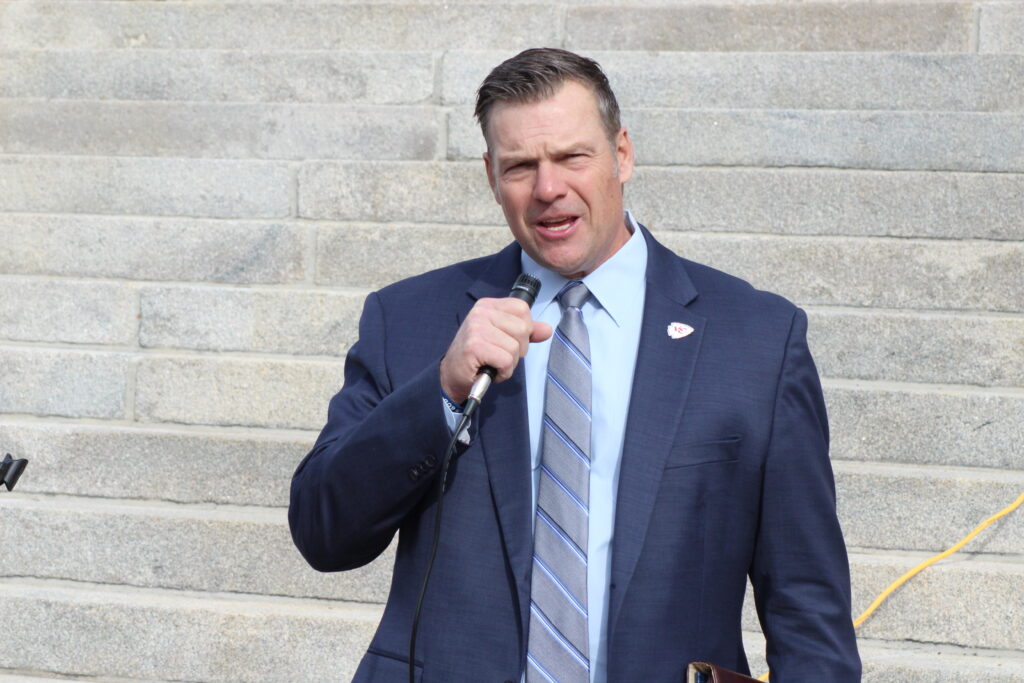Kansas Attorney General leads coalition of 21 states defending Second Amendment

Back in December of last year, Kansas Attorney General Kris Kobach led a coalition composed of 25 other state attorneys general and the Arizona Legislature, demanding President Biden’s Bureau of Alcohol, Tobacco, and Firearms (ATF) drops a proposed rule that would be considered a “violation of the Second Amendment.” A 9-page public comment letter to the ATF in regards to the proposed rule was sent by Kobach. According to a press release from the Kansas AG, the ATF’s rule would “prevent law-abiding Americans from privately selling firearms.”
On Wednesday, May 1, Kobach, on behalf of 21 other state attorneys general, took it a step further, filing a lawsuit against the ATF for this rule.
“Biden’s latest attempt to strip away the Second Amendment rights of Americans through ATF regulations will make many law-abiding gun owners felons if they sell a firearm or two to family or friends,” Kobach said. “This rule is blatantly unconstitutional. We are suing to defend the Second Amendment rights of all Americans.”
Under the new rule, anyone selling a firearm for what the ATF deems a “profit,” whether that’s in the form of currency, an exchange of firearms, or a service, would have to obtain a federal firearms dealer license. If an individual fails to obtain such license, according to the press release, “a gun hobbyist who sells a firearm to another family member or a hunter who trades a firearm with another hunting buddy” could be considered a “felon”.
“Until now, those who repetitively purchased and sold firearms as a regular course of business had to become a licensee… This rule would put innocent firearm sales between law-abiding friends and family members within reach of federal regulation,” the court filing reads. “Such innocent sales between friends and family would constitute a felony if the seller did not in fact obtain a federal firearms license and perform a background check.”
Attorneys general from Iowa, Montana, Alabama, Alaska, Arkansas, Georgia, Indiana, Idaho, Missouri, Nebraska, New Hampshire, North Dakota, Oklahoma, South Carolina, South Dakota, Tennessee, Virginia, West Virginia, and Wyoming join Kobach in the lawsuit, arguing that “the rule is unconstitutional, because it is vague, violates the Second Amendment, and circumvents Congress.”
Thanks for reading. Be sure to share and subscribe. You can also help support independent journalism in Kansas by buying me a coffee at buymeacoffee.com/kscon.

Ian Brannan
Ian Brannan is an independent journalist who founded The Kansas Constitutional in April 2022. His work focuses on issues including abortion, Convention of States, drug policy, education, gun policy, LGBT issues, media, and more.
